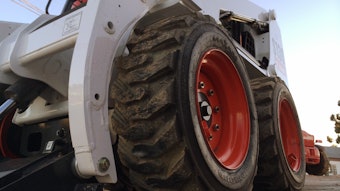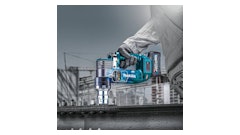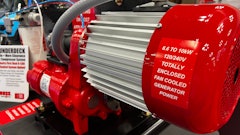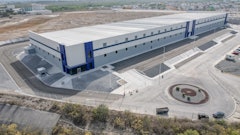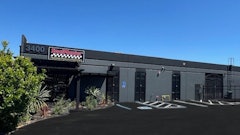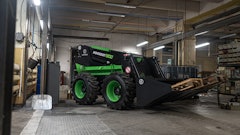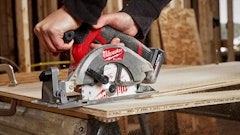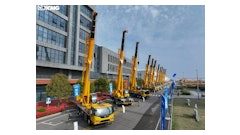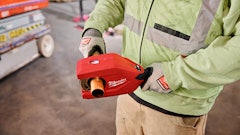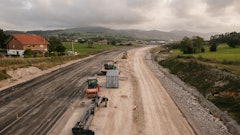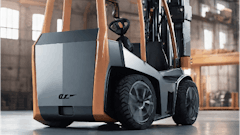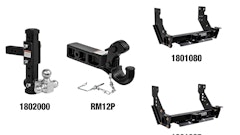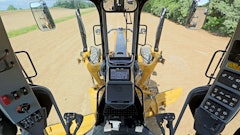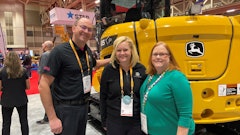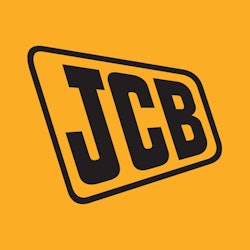
JCB has forged a partnership with Kohler's Global Power Group, adopting a range of fuel-efficient Tier 4 Final/Stage IIIB engines for many of its compact machine lines.
Kohler will supply three- and four-cylinder engines from 42 to 74 hp (31 kW to 55 kW) for JCB’s range of compact construction equipment. The water-cooled Kohler Direct Injection (KDI) engines - which will be branded JCB Diesel by Kohler - meet the next stage of emissions regulations without the need for a DPF.
JCB has gone from a new entrant in engine manufacturing to a global producer with the first JCB engine rolling off the production line in the UK in November 2004. Since then production has been extended to JCB India’s HQ at Ballabgarh and to date more than 250,000 engines have been produced globally.
JCB went into production this year with the JCB Ecomax engine, which meets US Tier 4/EU Stage IIIB Interim emissions standards without the need for a diesel particulate filter (DPF) or external exhaust after treatment.
Technology-based Partnership
The first JCB machine to be fitted with the new engine - a JCB 35D 4x4 Teletruk - was unveiled at the RWM waste management show at the Nation Event Centre (NEC) in Birmingham, UK.
“The decision to partner with Kohler to develop engines for JCB compact machines was driven by the synergy in the technologies used by JCB and Kohler to achieve stringent Tier 4 Final emissions legislation," said Alan Tolley, JCB’s director of engine programs. "Kohler’s achievement of Tier 4 Final without the need for a bulky DPF is fully in line with our own engine strategy and allows our designers maximum flexibility when it comes to meeting machine design and packaging requirements. These highly efficient engines will offer our customers improved performance and lower fuel consumption.”
The European-built engines will be progressively introduced in JCB products, including the Teletruk TLT35D; 406 and 409 compact wheel loaders; 135, 155, 175, 190 and 205 skid steers; 150T, 190T and 205T compact track loaders; and select compact excavator models.
High Torque Output
The KDI engines use a Common Rail fuel injection system working at 2,000 bar pressures, cooled exhaust gas recirculation (EGR), four valves per cylinder and a diesel oxidation catalyst (DOC) within the exhaust system. Fuel consumption is up to 15% better than a similar output engine equipped with lower injection pressures and a DPF.
There are two 1.9-liter three-cylinder engines, the KDI 1903M and the KDI 1903TCR, delivering 31kW (41hp) with 133Nm of torque and 42kW (56hp) with 225Nm of torque respectively. The 2.5-liter, four-cylinder KDI 2504M and KDI 2504TCR deliver 36.4kW (48.8hp) with 170Nm and 55.4kW (74hp) with 300Nm. The engines meet all JCB standards, with 500-hour maintenance intervals available on all models. Strong, low-rpm torque characteristics will result in improved machine performance and added engine response, delivering improved productivity for JCB customers.
“Innovation is a common thread running through the design of this completely new family of engines by Kohler,” said Giuseppe Bava, chief executive officer of Kohler’s diesel engine business unit. "They feature highly advanced technology for clean combustion and limited emissions without the use of after-treatment systems. The KDI engine family is designed to be compact, yet providing best in class performance.”
Tom Cromwell, president at Kohler Engines, added: “Kohler is extremely proud to be appointed as JCB’s engine supply partner for a wide range of construction equipment with the Kohler KDI engines. Reflecting the significant investment made by Kohler within diesel engine innovation and technology, these compact engines enable the machines to meet the stringent EPA Tier 4 Final and EU Stage IIIB emission regulations without the use of a DPF, while delivering significant fuel savings for JCB customers. This aligns perfectly with JCB’s wider engine strategy.”




